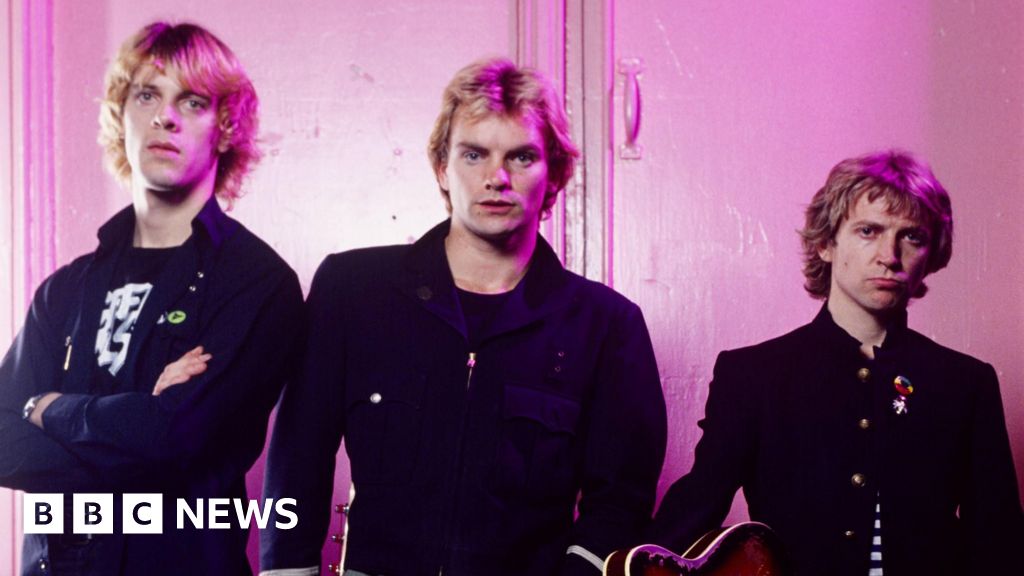Sting sued by ex-Police bandmates over royalties
- BBC News
Sting has been sued by his former bandmates in The Police over alleged lost royalties for the songs they recorded together between 1977 and 1984.
In a civil case filed at the High Court, guitarist Andy Summers and drummer Stewart Copeland, claim they have been underpaid for their contributions to songs like Roxanne and Every Breath You Take.
Although they did not receive writing credits on those songs, they say the band entered an "oral agreement" to share income in 1977, which was later formalised in written contracts.
Sting, who wrote all of The Polices biggest hits, denies underpaying his bandmates. In court documents, his lawyers called the claims "illegitimate."
The Police formed in 1977 and quickly became one of the UKs most commercially successful bands.
They earned a US number one single with Every Breath You Take, taken from their fifth album, Synchronicity, in 1983.
It was later recognised as the most-played radio song of all time and was heavily sampled on P Diddy and Faith Evans 1997 song Ill Be Missing You.
However, the band split up in 1984 amid personal and musical animosity.
Copeland later told The Guardian that the band "beat the crap out of each other" during the "very dark" recording sessions for Synchronicity.
In 2022, Sting, whose real name is Gordon Sumner, said he felt the band were holding him back.
"My frustration was I would have written an albums worth of material but also had to entertain these others songs that were not as good," he told Mojo Magazine.
"Explaining to someone why their song isnt working is a bit like saying their girlfriends ugly. Its a very personal thing... That pain was something I didnt want to go through any more."
Although Sting was the bands primary songwriter, the other members both made contributions to their albums - and Summers has often claimed that he originated the iconic guitar riff on Every Breath You Take.
In 1977, documents submitted to the High Court show the band agreed that, when any one member received publishing income for a song theyd written, they would share a percentage of that money, usually 15%, with the other two members, in what was termed an arrangers fee.
In the court documents, none of the members agree how that arrangement came into place.
Summers recalls it taking place on the street outside their manager Miles Copelands office in Notting Hill.
Sting, however, contended there was no "oral agreement" - but that Copeland had floated the idea to help "keep things sweet" between the band members.
Either way, the agreement was formalised in 1981, and revised again in 1995 and 2016.
The current legal dispute centres around which categories of publishing income Summers and Copeland should receive compensation.
Its a complicated area, but royalties are generally split into two separate categories:
Summers and Copeland argue that they should be paid for both of these categories, while Sting says their agreement only covers mechanical royalties.
Stings lawyers further contend that, under the terms of the bands 2016 agreement, all three members agreed not to pursue any historic or future claims over royalties.
His bandmates claim that does not stop them disputing the terms of the 2016 agreement.
They claim a loss of about £1,750,000. Stings lawyers denied they had been underpaid and argued that, in fact, Summers and Copeland may owe him money that has been overpaid to them.
In 2022, the musician sold the rights to his songwriting catalogue to Universal Music Group, with the deal covering both his solo hits and songs he penned for the Police.
The deal was estimated to be worth $250 million (£187 million).